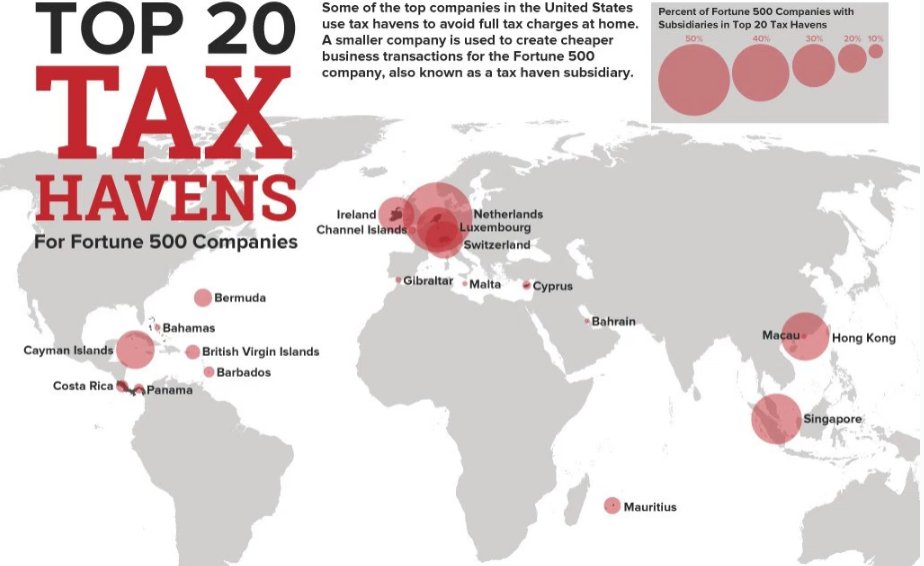Investigations
Africa Losing U.S.$25.7 Billion to Fraudsters Using Tax Havens

Governments in Africa lose about $25 billion annually to corporate abuse by multinationals who transfer profits to offshore tax havens and to individuals engaging in tax evasion through undeclared assets.
Of these losses, $23.2 billion is to tax abuse by multinationals and $2.3 billion is lost to evasion by individuals and the money is equivalent to the paying annual salaries of 10.1 million nurses on the continent or enough to pay $21 per person of the continent’s 1.2 billion people.
According to data collated jointly by the watchdog organisations Tax Justice Network (TJN), Public Services International (PSI) and Global Alliance for Tax Justice (GA4TJ), over $1.2 billion is lost by East African governments — Kenya, Ethiopia, Burundi, Tanzania, Uganda, South Sudan and Rwanda.
Global Alliance for Tax Justice said tax loss of $25.7 billion every year is equivalent to 52.46 percent of the continent’s combined health spending and equates to 28.67 percent of Africa’s combined education spending.
“That loss is equivalent to 6.69 percent average tax revenue of 370.3 billion and greater than global average loss of 2.61 per cent tax revenue,” said GA4TJ. Top five losers are Nigeria, South Africa, Egypt, Angola and Sudan.
Data opacity
An inaugural report released last week of November by Tax Justice Network, titled State of Tax Justice 2020 found that higher income countries were responsible for 98 percent of all the tax loss by countries around the world lost while a lower income countries were responsible for only two per cent.
The reports say; “Multinational corporations paid billions less in tax than they should have by shifting $1.38 trillion worth of profit out of the countries where they were generated and into tax havens, where corporate tax rates are extremely low or non-existent. Private tax evaders paid less tax than they should have by storing a total of over $10 trillion in financial assets offshore.”
TJN’s Miroslav Palanský, a data scientist, says $25.7 billion is lost in Africa to offshore tax heavens with most of the revenue losses incurred by Kenya are due to tax abuse by companies than wealthy private individuals.
“This means that there is a relatively high amount of economic activity reported by multinationals in Kenya compared with profits these companies report in Kenya and paid taxes,” he said in an online presentation.
Mr Palanský said TJN with other partners are calling for full company-level data to be made publicly available as full extent of corporate tax evasion cannot be determined based on data self-reported by multinationals or published by Economic Co-operation and Development (OECD).
The Paris OECD ensured no individual company could be identified.
“Revenue loss can be attributed to the misalignment between economic activity and profits. The precise reasons for this cannot be identified with certainty using the country-by-country-reporting data,” said Mr Palanský.
“We identify a number of actions countries can take to reduce amount of money lost to tax havens. One action, EAC members can take is to boost tax transparency by making data from country-by-country reporting publicly available at company level,” said Mr Palanský.
The Tax Justice Network said Kenya is hardest-hit in the region, losing $565.8 million annual — $502.4 million to corporates and $63.3 million to individuals — depriving the country of much needed money for development and provision of essential services. The social impact of this loss is some 36.02 percent of the country’s health budget.
Kenya’s tax loss is equivalent to paying annual salaries of 240,781 nurses and equivalent to 13.28 per cent of country’s annual education spend.
Vulnerability to illicit financial flows is through exports to Pakistan, Netherlands and the US who are among Kenya’s major trading partners.
In Tanzania, the government lost $299 million by way of profit shifting by multinationals and imports misinvoicing by private tax evaders annually with the $279 million lost attributed to global tax abuse by multinationals while $20 million was lost to global tax evasion by private individuals.”
This loss is equivalent to 40.76 percent of the public health expenditure or annual pay for 135,577 nurses. The country is also vulnerable to illicit financial flows through on inward trade (imports), with Saudi Arabia having 21.1 per cent risk, China (16.8 percent) and India (10.6 percent).
Burundi loses $1.9 million as annual tax to offshore tax evasion which is equivalent to 2.95 percent of public health expenditure or equivalent to annual salaries of 4,000 nurses.
In Ethiopia, the annual loss is $379.5 million, of which $362.6 million goes to multinationals and $16.9 million is lost to individuals’ offshore tax evasion. The total loss is equal to the annual salaries of 436,648 nurses.
Ethiopia’s vulnerability to illicit financial flows linked to outward trade (exports) with China, accounting for 10.1 percent risk, Saudi Arabia (9.9 percent) and Kuwait (9.7 percent). Burundi is vulnerable due to exports to Switzerland posing 15.4 per cent risk.
Uganda incurs losses of $115.3 million of which $96.5 million caused by corporate tax dodging and $18.7 million by individual, an equivalent of 31.43 percent of public health expenditure or annual pay of 83,658 nurses. But Uganda too inflicts tax loss of $14.3 million on other countries. It is vulnerable to illicit financial flows based on exports with Kenya posing 27.9 percent risk, the UAE (21.3 percent) Rwanda (9.7 percent).
Corporate abuse
Rwanda loses $72 million annually to unpaid tax with $69.9 million driven by corporate tax abuse and $2 million by individuals’ evasion. The loss is equal to 34.78 percent of public health expenditure and lost money can pay 88,061 nurses annual salaries.
Rwanda faces illicit financial flows based on exports with Kenya posing 29.5 percent risk, United Arab Emirates (20.2 percent) and Switzerland (16.4 percent). South Sudan and Somalia lose $7.2 million and $291,652 respectively as tax.
Africa’s tax havens cause other countries to lose $4.7 billion through the presence of tax havens here, an equivalent of annual salaries of 375,708 nurses.
The tax havens in Africa are responsible for 1.11 percent of global tax losses with $3.5 billion lost as multinationals are enabled to commit corporate tax abuse and facilitating private evasion of about $1.1 billion.
Corporate abuse is linked to multinationals shifting profits to tax havens in order to under report the profit made in countries of operation and paying less taxes than they should. Revenue is also lost when wealthy individuals hide undeclared assets and incomes offshore beyond the reach of the law.
Taxpayers worldwide lose $427 billion each year to private tax evasion by individuals and multinational corporate profit-shifting now under cutting public funding for Covid-19 response. Money lost is nearly 34 million nurses’ salaries or one nurse’s salary every second.
Global number of salaries is based first on calculating how much each country’s tax losses is equivalent to in local average annual nurse salaries. The figures added to produce these totals are based on OECD nurse salaries data.
TJN’s CEO Alex Cobham said the Covid-19 pandemic has exposed the grave cost of turning tax policy into a tool for indulging tax abusers instead of protecting people’s wellbeing.
“We urge governments to introduce an excess profit tax on large corporations that short-change countries. For digital tech giants who claim to have our best interests at heart while having abused their way out of billions in tax, this can be their redemption tax,” he said.
The five top destinations which are responsible for tax losses in other countries by enabling corporate abuse or private tax evasion are Cayman Islands, the UK, Netherlands, Luxembourg and the US. The Caymans is responsible for 16.5 per cent of global tax losses (over $70 billion), UK (10 per cent over $42 billion), Netherlands (8.5 percent over $36 billion), Luxembourg (6.5 percent over $27 billion) and the US (5.53 percent over $23 billion).
Kenya Insights allows guest blogging, if you want to be published on Kenya’s most authoritative and accurate blog, have an expose, news TIPS, story angles, human interest stories, drop us an email on [email protected] or via Telegram
-

 Americas6 days ago
Americas6 days agoEpstein Files: Bill Clinton and George Bush Accused Of Raping A Boy In A Yacht Of ‘Ritualistic Sacrifice’
-

 Business1 week ago
Business1 week agoCooking Fuel Firm Koko Collapses After Govt Blocks Sh23bn Carbon Deal
-

 Business7 days ago
Business7 days agoABSA BANK IN CRISIS: How Internal Rot and Client Betrayals Have Exposed Kenya’s Banking Giant
-

 Business4 days ago
Business4 days agoKRA Can Now Tax Unexplained Bank Deposits
-

 Lifestyle11 hours ago
Lifestyle11 hours agoThe General’s Fall: From Barracks To Bankruptcy As Illness Ravages Karangi’s Memory And Empire
-

 Investigations2 weeks ago
Investigations2 weeks agoPaul Ndung’u Sues SportPesa for Sh348 Million in UK Court, Accuses Safaricom Boss of Sh2.3 Billion Conspiracy
-

 Investigations3 days ago
Investigations3 days agoEpstein Files: Sultan bin Sulayem Bragged on His Closeness to President Uhuru Then His Firm DP World Controversially Won Port Construction in Kenya, Tanzania
-

 Americas6 days ago
Americas6 days agoEpstein Files: Trump Accused of Auctioning Underage Girls, Measuring Genitals and Murder















